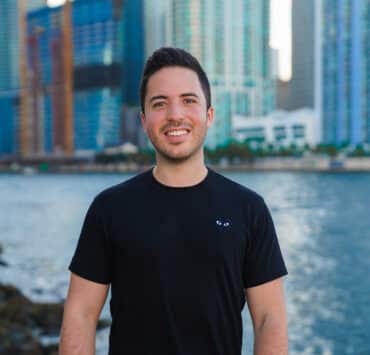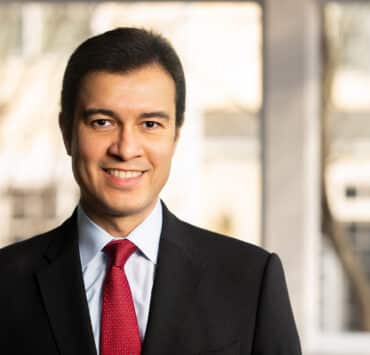|
Getting your Trinity Audio player ready...
|
During my time as the CEO of the Society of Hispanic Professional Engineers (SHPE), I helped drive a single mission: to empower the Hispanic community to realize its full potential in STEM. Despite the obstacles that many Hispanics face in forging a career in STEM, we believed that with the right combination of programs, resources, and outreach, SHPE could make a difference. That we could help rewrite the narrative.
By all accounts, we made good on all of these objectives. We increased our membership and engagement, created new cutting-edge programming, and helped dozens of organizations—including many Fortune 500 companies—better understand the business necessity of hiring and promoting Hispanic talent. Make no mistake; we still have a long way to go. But there’s a growing sense that the tide is finally starting to turn. That Hispanics really are the future imperative in STEM.
When I joined global consulting firm Charles River Associates as its first chief inclusion and engagement officer in June 2021, I was driven by a similar sense of purpose: to help make our firm more diverse and more dynamic. And while I’m incredibly proud of the initiatives we’ve undertaken—improving our recruiting, hiring, and training practices as well as launching new employee resource groups—the broader systemic challenges our community is facing have only become more apparent, particularly when it comes to diversifying and making more inclusive one of the business world’s most critical practice areas: economics.
Indeed, the data couldn’t be starker. According to a 2020 study by the Brookings Institution, a mere 30 percent of PhD economists in the federal government (and 23 percent of economics faculty in academia) are women. Those numbers are even lower for minority economists at the federal level (24 percent) and in colleges and universities (21 percent)—this despite minorities making up nearly 43 percent of the US population.
It’s not just that minorities and women don’t have a seat at the table; we’re not even in the building. That’s a huge problem. After all, we’re talking about a discipline that has enormous ramifications for literally everyone. Companies use economics—its research and data, frameworks and models, results and conclusions—to figure out where to allocate their resources or how many people they should hire (or fire). Governments rely on it to determine spending priorities and fiscal policy. Alter a model even slightly and you’re liable to change hundreds, thousands, even millions of lives.
In other words, economics is about more than just numbers. It’s about people (that’s why they call it a social science, after all). It’s about ideas. It’s about narratives. And right now, far too few of us are being given the chance to write and influence them.
Fortunately, the opportunity for change may be brighter than we realize.
According to a 2017 study by the American Economic Association, Hispanic representation in the field of US economics increased by 113 percent (from 4.9 percent to 10.2 percent) between 1995 and 2015, the highest level of growth of any minority group. (For context, the Hispanic population itself increased by 73 percent.) We’re closing the gap on college enrollment as well, with 36 percent of Latinos aged eighteen to twenty-four enrolled in economics courses as of 2019—just 5 percent less than their white counterparts (per the Postsecondary National Policy Institute).
What we’re left with are two equally critical questions:
- How do we continue to ensure greater access to postsecondary education for Hispanics?
- How do we encourage more Hispanics to pursue economics as a career choice?
We could discuss each of these ad nauseum, but in truth the two are inextricably linked—and even mutually reinforcing. The more resources we dedicate to increasing college enrollment among Hispanics, the more Hispanic economists we’ll create. Conversely, the more Hispanic economists we create (and the more their ideas and experiences are reflected in our nation’s research data and resulting economic models), the better chance we have of influencing, designing, and drafting policies that empower our community—including increased access to higher education.
As the first is largely a matter of policy (and thus harder for any one person or entity to untangle), it’s the second question that we, as Hispanic leaders, have real opportunity to address—in our businesses, in our institutions, and in our communities. And a big part of that endeavor is how we frame what economics is.
At its core, economics is about choices: both the personal (what we buy) and the societal (how we allocate resources). But it’s not just about choices. It’s also about power. Influence. Access to resources. It’s no longer enough to simply say that Hispanics have a positive impact on the economy or that hiring more Hispanics will lead to greater growth—we need specifics, and we need action. The more Hispanics are involved in these broader analyses, the more diverse, equitable, and inclusive the discipline of economics will become.
As much as any other field, economics is ripe for this kind of seismic shift. But only if we can make the case to younger Hispanics that they can be the catalysts. That they have the power to bring about real, lasting change—at all levels of society. That they can, in fact, have a seat at the biggest, most important tables. As long as they have the encouragement—and the courage—to do it, and rewrite the narrative for good.
The views expressed in this article are those of the author and do not necessarily reflect the position of Hispanic Executive or Guerrero Media.
Raquel Tamez currently serves as the chief inclusion and engagement officer (CIEO) at global consulting firm Charles River Associates (CRA). A leader in providing economic and financial expertise to major law and accounting firms, CRA also does consulting work for corporations and governments around the world. Tamez plays an integral role in the firm’s DEI efforts and initiatives—both in-house and globally—and is essential to empowering its workforce. Her ability to strengthen CRA’s culture allows the firm to better serve its clients and communities.

